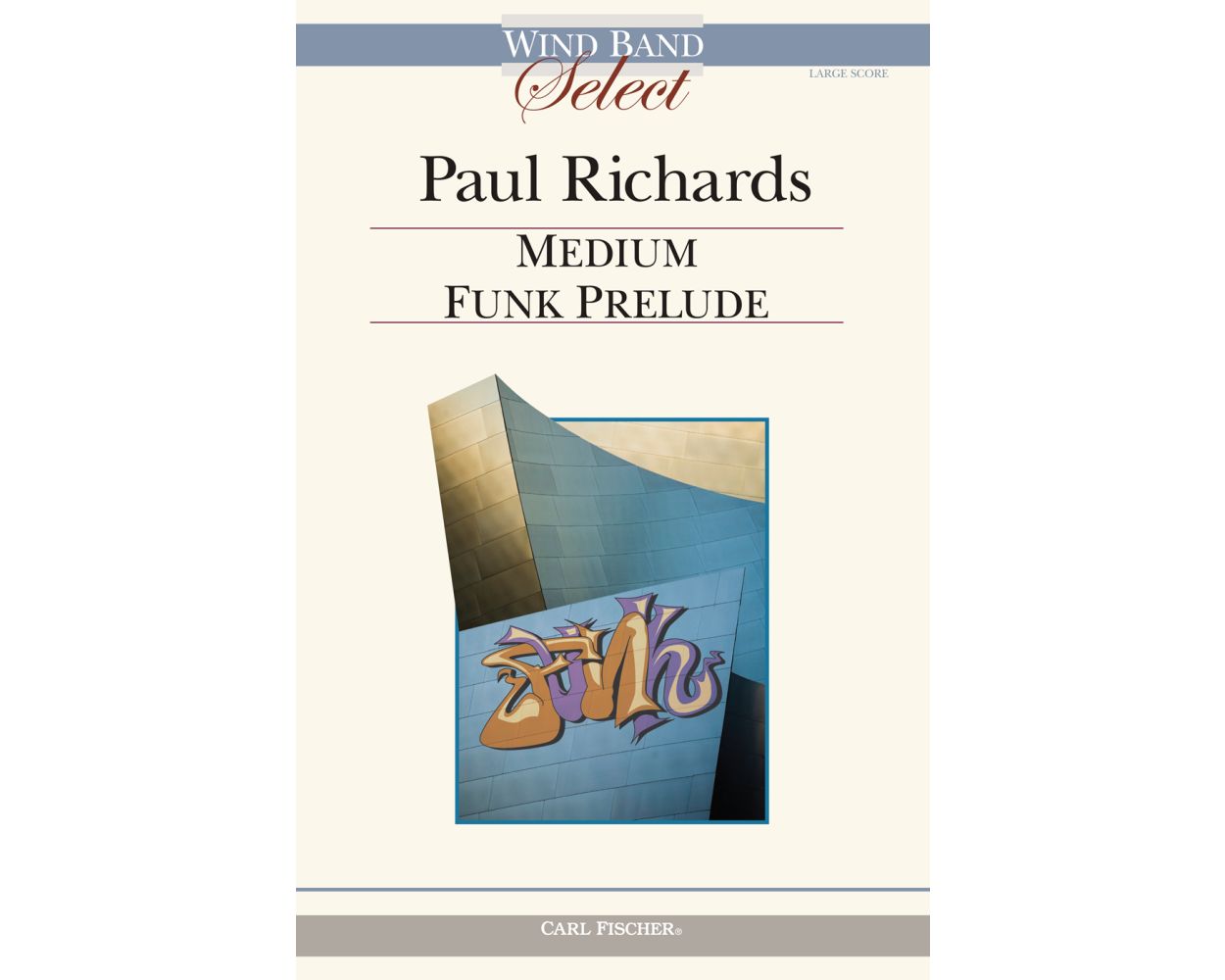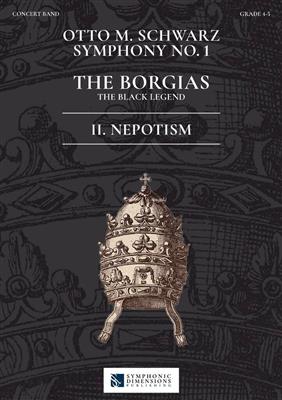Results
-
 £22.61
£22.61All Tuned Up - 120 Famous Tunes for All Occasions (Full Score - US Size) PDFs
This unique new resource from BrookWright Music will be an essential part of every band's library! All Tuned Up is designed to cater for ensembles for occasions throughout the year. Tunes are drawn from genres including Classical, Hymns, Folk and Patriotic amongst many others to form a comprehensive book that will cover a wide variety of events such as Weddings, Funerals, Graduation Ceremonies, Parties, Proms, Remembrance, Street Playing and Thanksgiving. Playable by as few as five players but also designed to work for full brass band or wind band, it features flexible parts in a wide variety of transpositions. These excellent arrangements have been expertly created by Andrew Wainwright, David E. Jones, Dean H. Jones and Steven Ponsford. The general harmonic format of All Tuned Up is in five parts, although additional notes have been included to thicken the harmony where more players are available. Therefore, the book will work equally well with larger groups, including full brass bands and wind bands. To view a promotional video please visit www.youtube.com/watch?v=nmodRrXQRRs At the end of the Part 1 Bb book are four a capela tunes for Remembrance/Memorial occasions. This PDF download is US Letter Size - 11" x 8.5" Physical copies of the books available from: UK - Individual Books Full Set Brass Band Set USA - www.solidbrassmusic.com/product/all-tuned-up-ensemble-books
In stock: Estimated dispatch 1-3 days
-
 £113.07
£113.07All Tuned Up - 120 Famous Tunes for All Occasions (Full Set - US Sizes) PDFs
This unique new resource from BrookWright Music will be an essential part of every band's library! All Tuned Up is designed to cater for ensembles for occasions throughout the year. Tunes are drawn from genres including Classical, Hymns, Folk and Patriotic amongst many others to form a comprehensive book that will cover a wide variety of events such as Weddings, Funerals, Graduation Ceremonies, Parties, Proms, Remembrance, Street Playing and Thanksgiving. Playable by as few as five players but also designed to work for full brass band or wind band, it features flexible parts in a wide variety of transpositions. These excellent arrangements have been expertly created by Andrew Wainwright, David E. Jones, Dean H. Jones and Steven Ponsford. The general harmonic format of All Tuned Up is in five parts, although additional notes have been included to thicken the harmony where more players are available. Therefore, the book will work equally well with larger groups, including full brass bands and wind bands. At the end of the Part 1 Bb book are four a capela tunes for Remembrance/Memorial occasions. To view a promotional video please visit https://www.youtube.com/watch?v=nmodRrXQRRs This PDF download is for US sizes: Full Score - Letter Size - 11" x 8.5" Band Parts - 7" x 5" Physical copies of the books available from: UK - Individual Books Full Set Brass Band Set USA - www.solidbrassmusic.com/product/all-tuned-up-ensemble-books The full set includes: Full Score Part 1 Eb (optional) - Soprano Cornet/Trumpet Eb, Clarinet Eb Part 1 Bb - Cornet/Trumpet Bb, Clarinet Bb, Flugel, Soprano Saxophone Part 1 C - Piccolo, Flute, Oboe, Part 2 Bb - Cornet/Trumpet, Clarinet Bb, Flugel Part 2 Eb - Tenor Horn, Alto Saxophone, Alto Clarinet Eb Part 2 F - Horn, Cor Anglais Part 3 Bb - Baritone, Trombone, Euphonium, Tenor Saxophone, Part 3 C (Bass clef) - Baritone, Trombone, Euphonium Part 3 Eb - Tenor Horn, Alto Saxophone, Alto Clarinet Eb Part 3 F - Horn, Cor Anglais Part 4 Bb - Euphonium, Baritone, Tenor Saxophone Part 4 C (Bass clef) - Euphonium, Baritone, Bassoon Part 5 Eb - Bass Eb, Baritone Saxophone Part 5 Bb - Bass Bb, Bass Clarinet Part 5 C (Bass clef) - Tuba, Bassoon, String Bass Percussion (optional) - Various
In stock: Estimated dispatch 1-3 days
-
£24.00
Christmas Around The World
1. Good King Wenceslas / 2. Alle Jahre wieder / 3. Les anges dans nos campagnges / 4. Lasst und froh und munter sein / 5. In dulci Jubilo / 6. We Wish You A Merry Christmas / 7. Ssser die Glocken nie klingen / 8. March of The Three Kings / 9. O Little Town Of Bethlehem / 10. Stille Nacht, Heilige Nacht / 11. The First Nowell / 12. Deck The Halls / 13. Jingle Bells / 14. Still, Still, Still / 15. We Three Kings / 16. O Tannenbaum / 17. O Come, All Ye Faithful / 18. Kommet, Ihr Hirten / 19. While Shepherds Watched Their Flocks / 20. O Du Frhliche / 21. God Rest You Merry Gentlemen / 22. The Holly And The Ivy / 23. O Holy Night / 24. Hark, The Herald Angels Sing / 25. Joy To The World / 26. Ihr Kinderlein kommt / 27. Kling, Glckchen, Kling / 28. Am Weinachtsbaum die Lichter brennen / 29. Es ist ein Ros entsprungen / 30. Il est n le divin enfant / 31. Vom Himmel hoch da komm' ich her / 32. Leise rieselt der Schnee
Estimated dispatch 10-14 working days
-
£22.00
Duet Album Vol. 1
1. Mlodie de l'Eurovision (J. F. Michel) / 2. Old Folks At Home (Stephen Foster) / 3. O du Frhliche / 4. Weinachtslied / 5. Grand Dieu nous te bnissons / 6. Hymne la Joie (Ludwig van Beethoven) / 7. Happy Birthday / 8. Ce n'est qu'un au revoir / 9. Cou Cou / 10. Carnaval de Venise / 11. Muss i denn zum Stdtele hinaus! / 12. Frre Jacques / 13. Marche / 14. Santa Lucia / 15. Volkslied aus der Schweiz / 16. Amazing Grace / 17. Glory, Glory Alleluja / 18. Funiculi, Funicula / 19. American Traditional / 20. Le bon Roi Dagobert / 21. Chant des Toradors / 22. Traditionnel Ecossais / 23. O Tannenbaum / 24. Ah si pure (Friedrich von Flotow) / 25. Schweizer Volkslied / 26. La Cucaracha / 27. Jericho / 28. Deep River / 29. La Paloma / 30. Swing Low, Sweet Chariot
Estimated dispatch 10-14 working days
-
£22.00
Duet Album Vol. 2
1. Sur le pont d'Avignon (Mlodie populaire) / 2. Sum, summ, summ (Mlodie populaire) / 3. Muss i denn zum Stadtele naus !(Mlodie populaire) / 4. Frre Jacques / 5. Le coq est mort (Mlodie populaire) / 6. Soyons gais (Mlodie populaire) / 7. Die Sternen (Mlodie populaire) / 8. Ei wie so tricht / 9. Marche (Ph. E. Chedeville) / 10. Santa Lucia (Mlodie populaire) / 11. Volkslied aus der Schweiz / 12. Stille Nacht / 13. Wenn ich ein Vglein war / 14. Deutscher Tanz (F. Schubert) / 15. Brderchen, komm tanz mit mir / 16. Les moines de St. Bernardin / 17. A toi la gloire (G. F. Handel) / 18. Amazing grace / 19. La Truite (F. Schubert) / 20. Wiegenslied (J. Brahms) / 21. Les anges dans nos campagnes / 22.La chasse (J. F. Michel) / 23. Matilda / 24. Glory, Glory Alleluja / 25. Auprs de ma blonde / 26.Leise rieselt der Schnee / 27. Napoli (Funiculi, Funicula) / 28. Le bon roi Dagobert / 29.Marche d'Ada (G. Verdi) / 30. American traditional / 31. Malbrough s'en va-t'en guerre
Estimated dispatch 10-14 working days
-
£27.00
Golden Hits
1. Muss i denn, Muss i denn / 2. Nobody Knows / 3. Glory, Glory Alleluja / 4. Kalinka / 5. I Got Rhythm (Gershwin) / 6. Amazing Grace / 7. Funiculi Funicula / 8. O When The Saints / 9. The Entertainer (Joplin) / 10. Go Down Moses / 11. El Condor Pasa / 12. La Cucaracha / 13. Joshua Fit The Battle Of Jericho / 14. Hava Nagila / 15. Auld Lang Syne
Estimated dispatch 10-14 working days
-
 £68.00
£68.00Beyond!
Beyond was written to celebrate America's exploration of space, culminating with the historic moon landing of Apollo 11 in July, 1969. The music moves through the exciting events: a sunrise awakening, the victorious emotion of the successful landing, the spreading news, trepidation at the challenges returning to earth, and the ultimate relief and joy at the safe splashdown of the NASA astronauts. Intended to ignite the imagination, this piece encourages players to tell a story with their instrument and wonder what else may lie ahead in the future, Beyond?
Estimated dispatch 12-14 working days
-
 £132.00
£132.00Sasha Takes a Train - Kim Portnoy
This large full score (11" x 17") is available for this entry in our Wind Band Select series at normal discount. Sasha Takes a Train, commissioned by the USAF Band of Mid-America, was inspired by a memorable overnight train ride in Eastern Europe taken by the composer's family. The music is intended to evoke the motion and sounds of the train and the noisy, scary, surprising and joyous character of the journey. Sasha refers to the composer's then 13 month old son Alexander who managed to sleep through much of his first train adventure.
Estimated dispatch 12-14 working days
-
 £121.00
£121.00Medium Funk Prelude - Paul Richards
This large full score (11" x 17") is available for this entry in our Wind Band Select series at normal discount. Paul Richards, composition teacher at the University of Florida, works with diverse musical genres, and this is reflected in Medium Funk Prelude, a brief dance in which a small group of figures are transformed and tossed about in the ensemble. Its title was in fact inspired by tempo markings in a jazz fake book. An unconventional yet challenging and exciting work for the advanced high school or university ensemble.
Estimated dispatch 12-14 working days
-
 £148.99
£148.99Symphony No. 1 - The Borgias - 2. Nepotism - Otto M. Schwarz
A sinister legend hangs over the Borgia family, a legend of corruption, abuse of power, orgies, sex and murder. These rumours proliferated especially during the papacy of Alexander VI, a descendant of the family, who was even called the Antichrist. On his death, contemporary witnesses reported that the devil himself prowled around the death chamber and a black dog run along the corridors of the Vatican as his emissary. One might say that this Borgia pope, who ruled together with his family with the greatest brutality, became demonised. Unscrupulousness, poison-toting, incest and other malice are to this day the hallmarks of this pontiff.2. NEPOTISMRodrigo Borgia was elected Pope on 11 August 1492. From the very start, the new pope was prepared to use any means to eliminate his opponents, either through the infamous 'Borgia poison' or by excommunication and execution. His son Cesare, who wanted little to do with the church, was appointed cardinal against his will. Alessandro Farnese, broth of Giulia Farnese, the Pope's mistress, also became a cardinal. Numerous Spaniards were brought into the country and were appointed to ecclesiastical posts. This infuriated the opponents of Alexander VI. The Dominican Girolamo Savonarola from Florence demanded the removal of the Pope. He was tortured and banned. Giuliano della Rovere wanted to convene councils to depose the Pope, which Alexander managed to prevent through artful political manoeuvrings. Through great brutality, brilliant political skill and power games, this pope was able to achieve his goal of leaving for his children a great legacy. Alexander VI constantly changed his allies and always acted unscrupulously to improve his financial situation and expand his sphere of influence. At the centre of the second movement of this work is the medieval hymn Dies Irae (Day of Wrath), which acts as a warning in the background condemning the Pope's actions.
Estimated dispatch 7-14 working days
